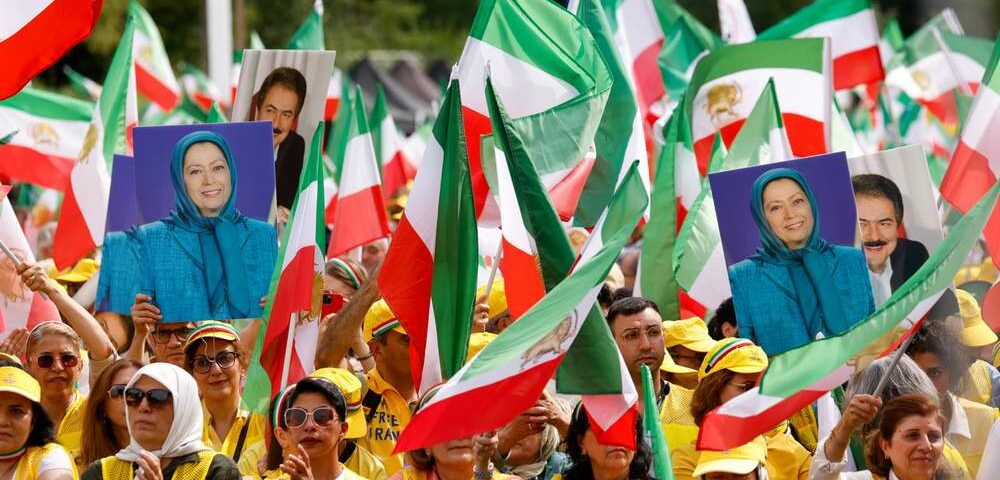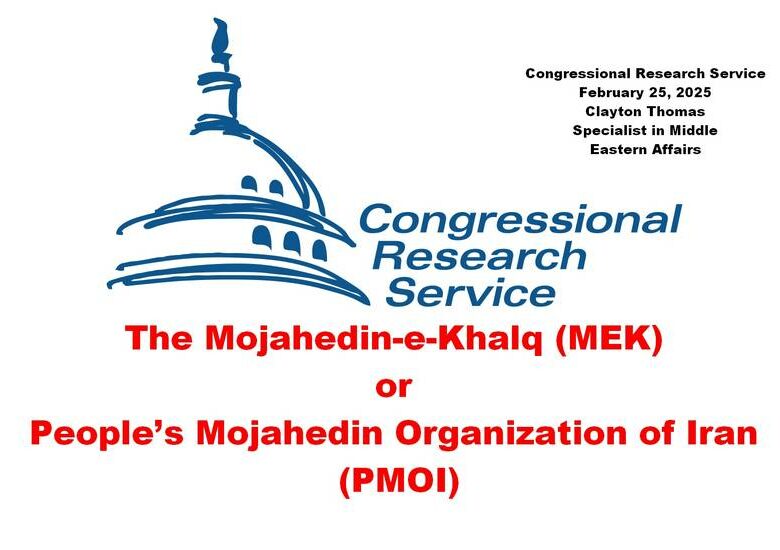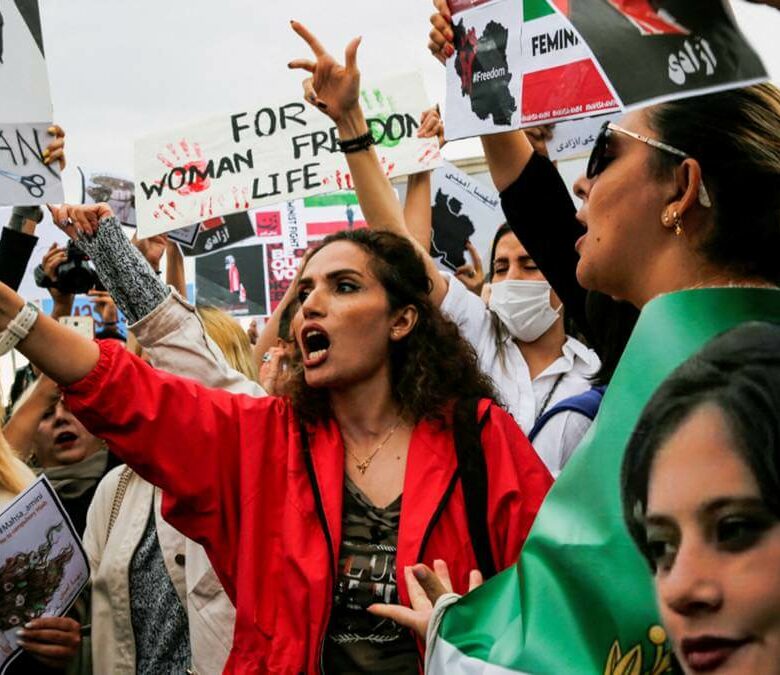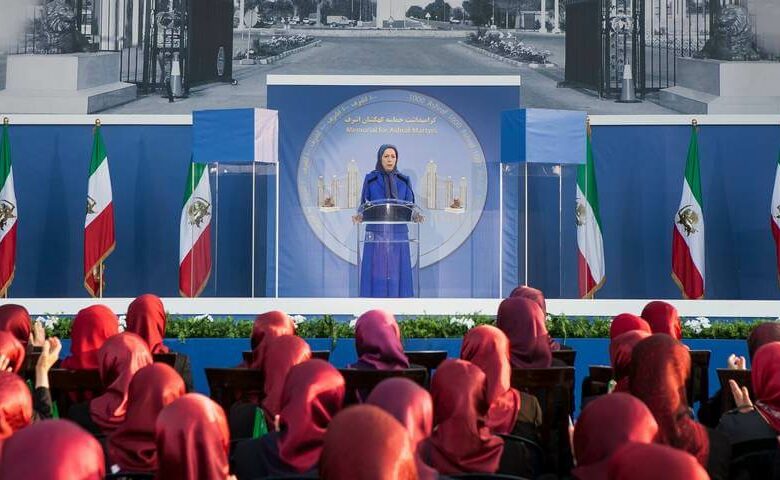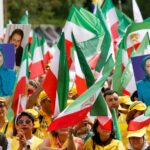
De l’Idéalisme à la Captivité – Le récit de Javad Firozmand au sein de l’OMPI
November 26, 2005This article is a striking personal account of life inside the People’s Mojahedin Organization of Iran (PMOI). Beyond the group’s flashy propaganda, the reality included torture, psychological control, forced family separations, and collaboration with Saddam Hussein. The central message: freedom and truth matter more than loyalty to any cult-like organization. Readers, Iranian and international alike, understand that the PMOI pursued power and violence rather than serving the Iranian people, and that escaping to true freedom is the greatest human achievement.
Why this article is important:
This article provides a direct and detailed testimony from inside the People’s Mojahedin Organization of Iran (PMOI/MEK) by Javad Firozmand, a former member who spent over 25 years within the organization. It reveals not only the internal mechanisms of control and violence but also the human and ethical challenges faced by those trying to leave.
For a French (or international) audience, this article is not merely a personal narrative but a historical and human document about abuses within political movements and cult-like organizations, and about the importance of individual freedom, human rights, and transparency. It also provides insight into how organizations claiming to fight for freedom may, in reality, use coercion and manipulation to maintain power.
Introduction
Today, human culture and knowledge have become so deep and transformative that few can achieve their goals through propaganda and distortion of facts. This is particularly true for Iranians, who possess one of the oldest and richest civilizations in human history.
This text does not aim to provide a philosophical, historical, or political analysis of society. Instead, with over 25 years of political and activist experience in Iran, I aim to document and analyze the political acts and events of a society that has been falsely portrayed by a group claiming to overthrow the Islamic Republic.
- Brief Organizational Introduction
1977 (1356 SH): I became a supporter of the PMOI and was active in most demonstrations and activities.
1979 (1358 SH): I joined the National Mojahedin Movement in Tehran and officially registered.
My activities included demonstrations, meetings, cultural, artistic, and social programs.
1981 (1360 SH): I rejected armed struggle and, as a result, was reprimanded by the leadership but continued to participate in non-armed activities.
1984 (1363 SH): I formed two resistance cells in Tehran named Jalal Pishva and Behrooz Shirdel.
Missions and Transfers
1984 (1363 SH): For the mission of transferring Mozhgan Homayounfar abroad, I went to Turkey.
Months later, Mozhgan was transferred to the PMOI base in Karachi.
My initial goal was to go to Europe, but we were forcibly transferred from Karachi to Baghdad, then stationed in PMOI bases in Iraq and Kurdistan, Iran.
Responsibilities and Specialized Services
1985 (1364 SH): Responsible for communications and telecommunications at border bases, later in Kirkuk.
Developed patch phones and FM relay radios (40–100W) for deep operations.
Designed durable metric antennas for mobile and handheld radios.
1989–2001 (1368–1380 SH): Technical head of wheeled vehicles in the National Liberation Army of Iran, including:
Establishing vehicle maintenance workshops.
Conducting about 100 specialized training courses.
Planning maneuvers and logistical missions inside Iran.
Procuring urban vehicles and spare parts.
Collaborating with major companies, including Toyota and Alexandria Automotive.
Attending logistics meetings with Mehdi Abrishamchi, Abbas Davari, Hamid Ba’tabi, Mahvash Sepehri, Mahbubeh Jamshidi, Zahra Akhiani, and others.
- Ideological Revolution and Separation
1989 (1368 SH): The ideological revolution led to the breakup of families; my life with Mozhgan Homayounfar ended without official divorce.
2001 (1380 SH): I protested against the organization’s inhumane practices, including:
Intra-group killings,
Torture of internal members,
The “Sayad Shirazi” operation on Saddam’s orders,
Receiving over $27 million monthly,
Massacres and suppression of Shi’a Iraqis,
Sectarian practices and betrayal of the Iranian people.
I fled to the home of Mohammed Ismail Saeed in Baghdad.
Masoud Rajavi ordered the PMOI and Saddam’s intelligence to return me, dead or alive, to Camp Ashraf.
I was captured by Saddam’s intelligence and transferred to Ashraf prison.
- Torture and Imprisonment at Camp Ashraf
I was handed over to Mehdi Abrishamchi, Mahvash Sepehri, Fahimeh Arvani, Hasan Nezam al-Maleki.
Tortures included:
Breaking my left rib by Mehdi Abrishamchi,
Losing 20 kilograms,
Tearing of both earlobes,
Puncturing my left eyelid with a pen.
Baqerzadeh Camp: Execution and 8 years of hard imprisonment ordered by Masoud and Maryam Rajavi.
My courageous statement:
“If you truly claim that the ideological revolution is the core of your existence… open the camp doors and stand aside. You will see not a single person will remain.”
- Second Escape and Seeking Refuge
2003 (1382 SH): After Saddam’s fall and the deployment of American forces, I escaped again and sought refuge with them.
11 months in the U.S. camp, filed 10 official complaints, and met General Miller and General Burg.
Complaints included meetings with Mozhgan Homayounfar and her brother Sohrab, and the three months of torture in Ashraf.
- Return to Iran and Arrival in France
Coordinated with the International Red Cross, returned to Iran, then migrated illegally to France.
Tried to meet Mozhgan Homayounfar to clarify family matters, but the PMOI responded negatively and offensively.
- Honor or Betrayal?
- Honor
25 years of organizational experience was my entire life’s investment.
True honor lies in escaping the grip of a horrific cult and attaining real freedom.
- Betrayal
PMOI collaborated militarily with Saddam Hussein, receiving over $27 million monthly.
Torture and violence against members, including myself.
Military operations in Iran directed from Iraq, while propaganda claimed the actions were done by Iranians.
Suppression of independent groups and lack of real social base.
- Conclusion
If true honor means serving the people and freedom, then the PMOI since 1981 (1360 SH) has not acted for the Iranian people but for Saddam Hussein’s goals, sectarian control, and violence.
My real honor is escaping the oppressive cult and reaching the free world. This is my historical and personal response to an organization that sought power and violence rather than freedom.
International Reports on Defection, Escape, and Human Rights Violations within the People’s Mojahedin Organization of Iran (MEK)
Several independent international organizations have investigated and documented the human rights situation inside the camps of the People’s Mojahedin Organization of Iran (PMOI/MEK), focusing on forced confinement, torture, and violations of freedom of movement and family life.
- Human Rights Watch, in its report “No Exit: Human Rights Abuses Inside the MKO Camps” (May 2005), revealed that defectors and dissenting members of the organization were subjected to long-term detention, solitary confinement, torture, and intense internal pressure.
(org) - The report’s summary section highlights key practices such as forced separation of married couples, strict psychological control, prohibition of leaving the organization, and the existence of internal prisons inside the MEK’s Iraqi camps.
(org) - A later report by Human Rights Watch (November 2011), “Iraq/MEK: Ensure Camp Residents’ Safety,” addressed the situation of MEK members at Camp Ashraf in Iraq and urged both the organization and the Iraqi government to cooperate fully with the United Nations High Commissioner for Refugees (UNHCR) to allow independent assessment of members’ status.
(org) - A separate analytical study by the RAND Corporation, titled “The Mujahedin-e Khalq in Iraq: A Policy Conundrum” (2009), described the organization as lacking real social support, operating as a cult-like structure, and financially and militarily dependent on Saddam Hussein’s regime.
(org)
Summary:
These reports collectively demonstrate that not only were dissenting or defecting members of the MEK subjected to severe restrictions and abuses, but international institutions have also concluded that the organization’s internal structure—particularly in its Iraqi bases—showed clear signs of human rights violations, forced family separations, unlawful detention, and systematic coercive control over its members.
2005 November 26 , Saturday
Javad FIROZMAND


